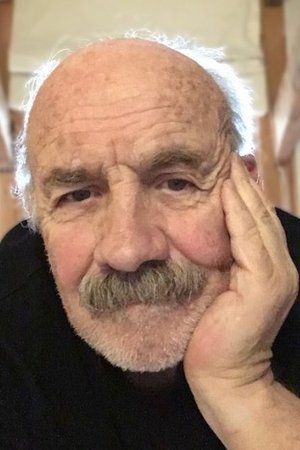Juan Forch (b. 1948)
Birthplace:
Santiago de Chile, Chile
Born:
January 1, 1948
The Chilean director, author and photographer Juan Forch was born in Santiago, Chile, in 1948. He studied journalism at the Universidad de Chile. While still a student, he worked as a photojournalist for Ramona magazine and joined the ChileFilms company as a scriptwriter and director for short documentaries. In 1972, he also co-wrote with Lucho Abarca the well-known study, Viaje por la juventud (A Journey through Youth, Quimantú publishing house), about the subculture youth scene in Chile. After the military coup in Chile in 1973 and a short detention, he immigrated to East Germany via Mexico. After working at the camera manufacturer, Dresden Pentacon, he joined the DEFA Studio for Animation Films in Dresden and learned the craft of animation. Between 1975 and 1978, Forch made several animation and documentary films drawing on his Chilean background and his artistic and political experiences in exile. The photo collages Chile lebt (1976) and Keiner kann die Revolution aufhalten (1976), the latter in collaboration with media artist Lutz Dammbeck, proclaim a hope for victory of progressive forces over the Pinochet dictatorship. The collage Chile (1975) by Forch and Jörg Herrmann reveals the USA as the backer of the military coup in Chile on September 11, 1973. The trick collage Hitlerpinochet (1975) by Forch and Herrmann draws similarities between political slogans used by Adolf Hitler and Augusto Pinochet. In 1976, Forch and Rolf Hofmann, filmed Chilean students in Dresden while drawing a mural in honor of former President Salvador Allende (Brigada - Ein Beitrag zur Solidarität anläßlich der 16. Arbeiterfestspiele 1976 in Dresden). The cut-out animation film Neutronenfrieden? (1977) offers a warning against a nuclear war instigated by the USA. Forch creates a visually and colorfully powerful epic about the life of the Indigenous Mapuche community in the cut-out film Lautaro (1977), his most comprehensive work at the Dresden studio. Moreover, the animation film Rosaura (1978) by Forch and Lothar Barke atmospherically translates a poem by Juan Forch into images. In 1978, Forch returned to Chile and created short commercials. Parallel to that, he worked on Chilean and foreign documentaries about the political situation in Chile, as well as developing his own productions on the Chilean art scene in the 1980s. In 1988, he was involved in the political NO campaign that helped crumble the Pinochet regime. Director Pablo Larrain narrates the history of this campaign in his feature film NO (2012). This film was nominated for Best Foreign Language Film at the Academy Awards and screened at the prestigious Cannes Film Festival where it won the 2012 C.I.C.A.E. Award. Forch was also associate producer for the thriller Johnny cien pesos (1993, dir. Gustavo Graef Marino) that was selected as the Chilean entry for the 2013 Best Foreign Language Film at the Academy Awards. After the NO Campaign in Chile, Forch has worked as a consultant on electoral campaign issues and political communication in several Latin American countries. Since 2000, Forch has written several novels, as well as poetry and short stories. He has also had his work featured in galleries and film festivals. Juan Forch currently lives in the southern part of Chile.





